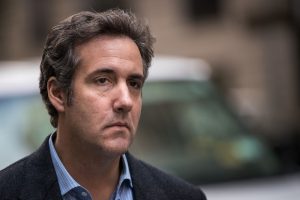My grandfather used to have a saying: “Do today’s work today.” This is, I appreciate, not a unique idea, and indeed is pretty widespread, but I’m going to attribute that to it being a generally good universal principle to live by. Fleetwood Mac, whose songs are all secretly productivity tips, even sang about the idea on the third single from Rumours, “Don’t Stop.”
Most procrastination can be solved by just doing today whatever you need to do today. It’s easy to fall into a hope of a magical future tomorrow where whatever stopped you from getting done today what you wanted to will no longer exist. But tomorrow is usually the same as today and yesterday. If today you were slowed down by a toothache or a broken arm, you will probably still have a toothache or a broken arm tomorrow, or at least injure yourself in some other way as you seem accident-prone. Or if today you were thrown off by some emergencies, you’re probably going to just get new emergencies tomorrow. Things tend to continue as they have.
Staying Away From Tomorrow-ism
Don’t fall into magical thinking. Be realistic about when and how you can complete the tasks that you need to complete, and what will stand in the way. Some things really are one-off circumstances and won’t repeat, but you need to be brutally honest with yourself about whether that’s really what you’re facing.
Being realistic about priorities will also allow you to make better judgments about what can be pushed off until tomorrow. If you are having trouble completing tasks because each day you have 29 “urgent” tasks and only get through five of them, then likely the 24 other weren’t really that urgent. If you find that you’ve pushed 10 of those items forward for three weeks, one day at a time, then those 10 items are really not urgent. In all those cases, the problem is one of proper priorities, and just not trying to do everything in one day would solve at least part of the problem.
Thus, if you do have to adjust priorities and put something off, be realistic about when it will get done. Allowing tasks to simply snowball from one day to the next won’t do anything except confuse your planning and waste time each day as you adjust all tasks. And when you do have to put something off, be realistic about when it needs to get done and will get done.
Also remember the difference between something that has to be done and something that has to be done by you. Very often the real issue with lingering tasks is that they’re best delegated. This folds back into prioritization: the time to realize a task should be delegated is when it comes up. If you decide to delegate only after having pushed the task off a day at a time for two weeks, then you’ve wasted a lot of time.
Get Started Today, Not Tomorrow
So get started today — not tomorrow — by properly setting your priorities and getting done today what needs to be done. The tomorrow you will thank you for it.
 Matthew W. Schmidt has represented and counseled clients at all stages of litigation and in numerous matters including insider trading, fiduciary duty, antitrust law, and civil RICO. He is a partner at the trial and investigations law firm Balestriere Fariello in New York, where he and his colleagues represent domestic and international clients in litigation, arbitration, appeals, and investigations. You can reach him by email at matthew.w.schmidt@balestrierefariello.com.
Matthew W. Schmidt has represented and counseled clients at all stages of litigation and in numerous matters including insider trading, fiduciary duty, antitrust law, and civil RICO. He is a partner at the trial and investigations law firm Balestriere Fariello in New York, where he and his colleagues represent domestic and international clients in litigation, arbitration, appeals, and investigations. You can reach him by email at matthew.w.schmidt@balestrierefariello.com.








 Olga V. Mack is the CEO of
Olga V. Mack is the CEO of 











